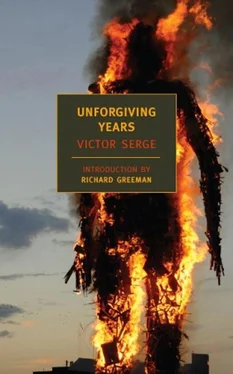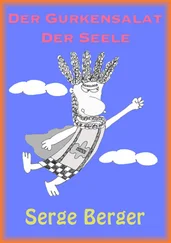Of this hard childhood, this troubled adolescence, all those terrible years, I regret nothing as far as I am myself concerned. Any regret I have is for energies wasted in struggles which were bound to be fruitless. These struggles have taught me that in any man the best and the worst live side by side and sometimes mingle — and that what is worst comes through the corruption of what is best.
Serge’s books have had almost as hard a life as their author. At the end of World War II, when Serge began Unforgiving Years , he was painfully aware of writing “exclusively for the desk drawer” — in which his classic Memoirs and Comrade Tulayev were already languishing, unpublished. Little hope in postwar Paris, what with paper shortages and the influence of the Communists in publishing. No luck either in New York and London, even with the help of Dwight Macdonald and George Orwell. With at least one Stalinist and two conservatives in every publishing house, “I’m at the point where I wonder if my very name will not be an obstacle to the novel’s publication…”
Tulayev and the Memoirs have attained the status of “classics” (albeit neglected ones), but Serge the novelist has remained marginalized. Yet he is arguably as important a novelist in the political genre as Malraux, Orwell, Silone, Koestler, and Solzhenitsyn. On the one hand, Serge’s radical socialist politics are seen by many critics as having no place in a novel, while on the other such is his prestige as a revolutionary participant-witness, often quoted by historians and political scientists, that his work as a literary artist is then deemed of secondary importance. For example, political scientist Susan Weissman’s recent book on Serge takes the position that “writing, for Serge, was something to do only when one was unable to fight.” [13] 13. The Course Is Set on Hope (Verso, 2002), p. 67. The book’s main argument is that “Serge’s critique of Stalinism was the core of his life and work” (p. 6), and she gives short shift to his anarchist years, his poetry, and his fiction, which she finds “useful” in understanding Stalinism.
Another reason for Serge’s neglect is his nationality, or lack thereof. As a stateless Russian who wrote in French, he apparently fell through the cracks between academic departments organized around national notions of “French” or “Russian” literature. As a result, there are as yet no Ph.D.s on Serge in any French university, nor will you find “Serge, Victor” listed in French biographical dictionaries and literary manuals. [14] 14. Serge is better known in US and British French departments, with two Ph.D. theses: my own (Columbia) and Bill Marshall’s (Oxford), later published as Victor Serge: The Uses of Dissent (New York: Berg, 1992).
Serge wrote in French, but his work is best situated in the Russian intelligentsia traditions of his expatriate parents. He inherited his father’s scientific culture (physics, geology, sociology) while his literary culture came from his mother, who taught him to read in cheap editions of Shakespeare, Hugo, Dostoyevsky, and the Russian social realist Korolenko. His mother’s family was apparently connected with Maxim Gorky. [15] 15. Serge went to see Gorky as soon as he arrived in Russia in 1919, but declined an offer to join the staff of Gorky’s newspaper. During the civil war, Serge depended on Gorky’s relationship with Lenin to intercede to save anarchist comrades from being shot by the Cheka.
By his concept of the writer’s mission, Serge saw himself “in the line of the Russian writers.” [16] 16. Serge, Memoirs .
And although he borrowed freely from cosmopolitan influences like Joyce, Dos Passos, and the French unanimists, Serge developed as a writer within the Soviet literary “renaissance” of the relatively liberated period of the free-market New Economic Policy (1921–1928). Indeed, during the 1920s, Serge was the principal transmission belt between the literary worlds of Soviet Russia and France. Through his translations and regular articles on Soviet culture in Henri Barbusse’s Clarté he introduced French readers to the postrevolutionary poetry of Alexander Blok, Andrei Biely, Sergei Esenin, Osip Mandelstam, Boris Pasternak, and Vladimir Mayakovsky, as well as to fiction writers like Alexis Tolstoy, Babel, Zamiatine, Lebidinsky, Gladkov, Ivanov, Fedin, and Boris Pilniak — his colleagues in the Soviet Writers Union. [17] 17. See Victor Serge, Collected Writings on Literature and Revolution , translated by Al Richardson (London: Francis Boutle, 2004).
By the mid-1930s, many of Serge’s colleagues had been reduced to silence (suicide, censorship, the camps). “No PEN-club” wrote Serge in exile, “even those that held banquets for them, asked the least question about their cases. No literary review, to my knowledge, commented on their mysterious end.” Only Serge — because he wrote in French and was saved from the Gulag by his reputation in France — managed to survive. Only Serge had the freedom to further develop the revolutionary innovations of Soviet literature and to submit the world of Stalinism to the critical lens of fiction in novels like Midnight in the Century , The Case of Comrade Tulayev , and Unforgiving Years. As one Russian scholar put it: “Although written in French, Serge’s novels are perhaps the nearest we have to what Soviet literature of the 30s might have been…” [18] 18. Neil Cornwell, review of Midnight in the Century , Irish Slavonic Studies 4 (1983).
Thus it was that Unforgiving Years remained unread for a quarter of a century. It was first published in Paris in 1971 by François Maspero, who was also bringing out many of Serge’s political books as the anti-Stalinist New Left developed in the 1960s. Praised by the critics at the time — Le Monde ran “The Secret Agent” as a serial and hailed the novel as Serge’s “political and literary testament” [19] 19. Morelle, p. 12.
— now, sixty years after it was written, it is appearing for the first time both in Russian and in English translation.
“A RATHER TERRIFYING NOVEL…”
Serge began writing Unforgiving Years (draft title Sands, Snows, Fire ) in Mexico in September of 1945. In January 1946 he announced his subject in a letter to Daniel Guérin in newly liberated France: “in progress: a rather terrifying novel on the problems of consciousness in wartime which is giving me actual headaches.” And indeed, Unforgiving Years is the most pessimistic, the most inward, and the most contemporary of Serge’s novels. His 1946 characters are asking twenty-first-century questions: How to live if history no longer has a meaning? What remains of human consciousness if society has indeed entered a regressive era of ideological repression and technological pan-destruction?
These themes are developed through a series of encounters among a quartet of Comintern agents — dedicated, idealistic men and women coming to terms with the transformation of their struggle for historical progress into the nightmare of totalitarianism and mechanized war. The Moscow Trials — the physical and moral destruction of Lenin’s 1917 “general staff ” — have left them stunned. Yet they also understand the secret logic of these loyal old Bolsheviks confessing to the most absurd “crimes.” They feel bound by a similar iron loyalty to the Party. Unthinkable to break, much less betray, what with the capitalist democracies coddling Hitler in the hope he will rid them of Red Russia. Where to turn? Trotsky may well speak the truth, but his puny “Fourth International” is riddled with Stalinist agents. “I can believe in nothing now but power,” thinks Secret Agent D. “Truth, stripped of its metaphysical poetry, exists only in the brain. Destroy a few brains, quickly done! Then, goodbye truth.”
Читать дальше












